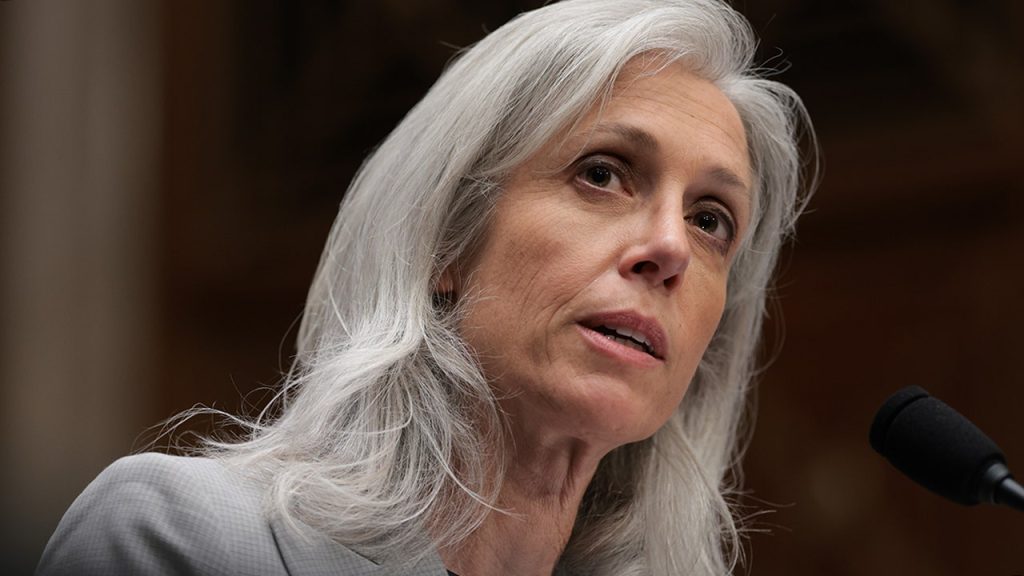CDC Leadership Crisis: Dr. Susan Monarez Refuses to Step Down Amid Controversy
In an unprecedented standoff within American public health leadership, Dr. Susan Monarez is challenging her removal as Director of the Centers for Disease Control and Prevention (CDC), less than a month after being sworn in as the agency’s first-ever Senate-confirmed director. The Department of Health and Human Services (HHS) announced her removal, but Monarez, through her attorneys Mark Zaid and Abbe Lowell, maintains she “has neither resigned nor yet been fired.” This dramatic development reflects deeper tensions between scientific integrity and political influence in public health policy during the early days of the Trump administration’s second term.
The conflict appears to center on fundamental disagreements about vaccine policy and agency direction. According to sources cited by The Washington Post, HHS leadership, including Secretary Robert F. Kennedy Jr., reportedly pressured Monarez to commit to rescinding approvals for certain COVID-19 vaccines. When she didn’t immediately agree, administration officials allegedly told her to resign or face termination. Her attorneys have framed this confrontation in stark terms, accusing HHS and Secretary Kennedy of “weaponizing public health for political gain and putting millions of American lives at risk.” They further stated that “when CDC Director Susan Monarez refused to rubber-stamp unscientific, reckless directives and fire dedicated health experts, she chose protecting the public over serving a political agenda.” The White House, however, has confirmed its intention to remove Monarez, with spokesman Kush Desai stating, “As her attorney’s statement makes abundantly clear, Susan Monarez is not aligned with the President’s agenda of Making America Healthy Again.”
Dr. Monarez brings impressive credentials to her contested role. Though notably the first CDC director without a medical degree in over 70 years, she holds a PhD in microbiology and immunology and has built a distinguished career in government service. Her extensive experience includes positions at the White House’s Office of Science and Technology Policy, the National Security Council, the Department of Homeland Security, and the Advanced Research Projects Agency for Health. During her confirmation process, Monarez expressed clear support for vaccines, telling lawmakers she has “not seen a causal link between vaccines and autism” – a position that potentially puts her at odds with Secretary Kennedy, who has historically questioned vaccine safety. The conflict highlights the tension between traditional scientific consensus and the administration’s health policy priorities under the “Make America Healthy Again” banner.
The leadership crisis at the CDC extends beyond Monarez herself, as news of her removal has triggered a wave of high-profile resignations within the agency. Sources confirmed to Fox News that at least three top CDC officials have tendered their resignations: Dr. Demetre Daskalakis, director of the National Center for Immunization and Respiratory Diseases; Dr. Daniel Jernigan, director of the National Centers for Emerging and Zoonotic Infectious Disease; and Dr. Debra Houry, the CDC’s chief medical officer. These resignation letters reportedly cite concerns about the administration’s approach to vaccines and budget cuts, suggesting a broader clash between career public health professionals and the new administration’s policy directions. This exodus of experienced leadership raises questions about the CDC’s stability during a period when public health expertise remains critical.
The conflict over CDC leadership occurs within a changing institutional context. In 2022, Congress passed a law requiring Senate confirmation for CDC directors, making Monarez the first to serve under this new requirement. This legislative change intended to increase accountability and oversight of this crucial public health position, but now appears to be complicating the administration’s ability to quickly install leadership aligned with its priorities. When Trump’s initial nominee, Dave Weldon, withdrew from consideration in March amid concerns about Senate support, Monarez was tapped as a replacement and ultimately confirmed in late July. The current dispute raises questions about the balance of power between the executive branch, career officials, and the legislative oversight process in determining who leads critical health agencies.
As this unusual standoff continues, its resolution will likely influence the future direction of American public health policy. The HHS has simply stated that “Susan Monarez is no longer director of the Centers for Disease Control and Prevention” and thanked her for “dedicated service to the American people,” while expressing confidence in the remaining CDC team’s ability to protect Americans against infectious diseases. Meanwhile, Monarez’s attorneys maintain she “will not resign” as “a person of integrity and devoted to science.” The outcome of this conflict may set important precedents for scientific independence within government agencies and the relationship between political appointments and public health expertise. With significant leadership departures already occurring and fundamental questions about vaccine policy at stake, the CDC faces a period of uncertainty at a time when public trust in health institutions remains crucial yet fragile.


